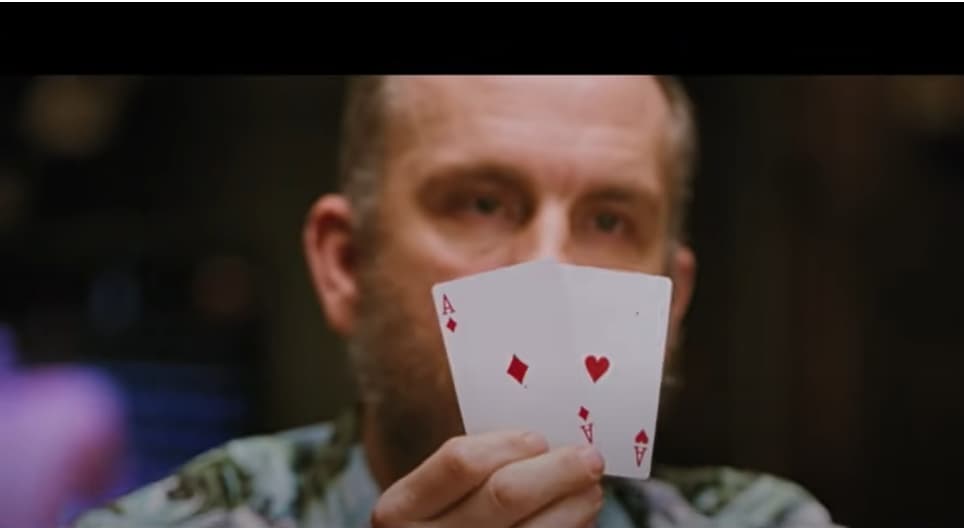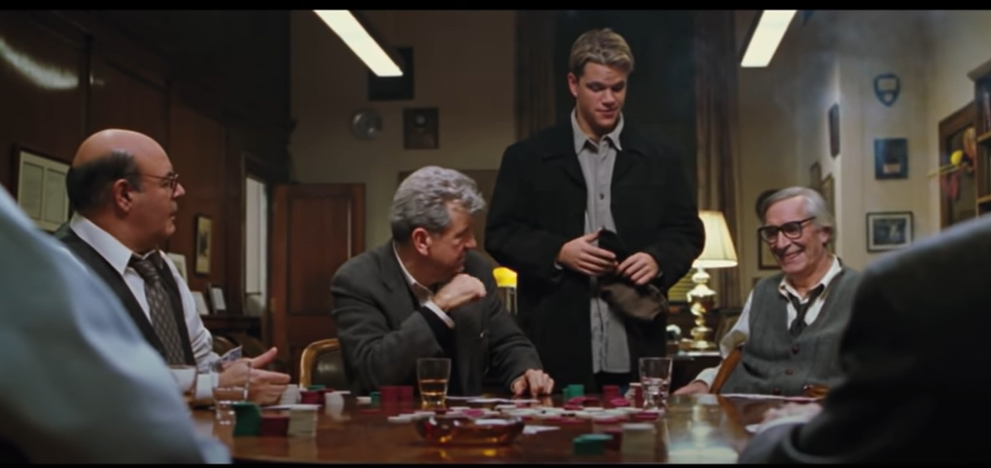As a professional poker coach and enthusiast, I’ve long appreciated the classic film Rounders. But after watching it numerous times, I feel I owe readers a balanced review from a poker strategy perspective. There’s much I love about Rounders, but certain elements make me cringe as a coach. So, while this iconic movie holds a special place for me and many poker fans, I must highlight both the good and the bad.
My goal is to give an honest, professional review of Rounders through the lens of real poker gameplay, strategy, and bankroll management principles. There is indeed much to praise, but flaws exist that warrant discussion to properly educate my readers and students.
The Good Things about Rounders
I want to focus on the positive things about this movie to start with. I’ve tried to prioritize the most important elements I consider good below:
Outstanding Acting
Matt Damon delivers an exceptional performance as the gifted yet reckless player Mike McDermott. His hyper-aggressive style epitomizes the poker maxim “no guts, no glory.” Damon makes you feel the intensity of high-stakes poker as Mike repeatedly risks it all with creative bluffs against world-class players.
Additionally, Ed Norton is superb in his role as Mike’s sly childhood friend Lester “Worm” Murphy. Norton captures Lester’s underhanded yet cunning poker style. The confrontations between Mike and Worm build tension thanks to the stellar performances from both lead actors.

Authentic Gritty Atmosphere
Rounders also authentically captures the gritty grind of illicit New York poker clubs in the 1990s. The film perfectly nails the dark, smoky underground atmosphere. You feel transported back to seedy backrooms filled with unsavoury characters and non-stop poker action. It was a gritty scene, and Rounders pulls you right into it.
Credibility From Real Pros
Appearances by real-life poker legends like Johnny Chan lend further credibility. The pros help immerse you in hardcore poker culture and the ego-filled world of champions. Overall, Rounders delivers unparalleled realism and transports you into Mike’s hazardous high-stakes habitat.
Joey Knish: The Consummate Poker Pro
While Mike McDermott models reckless play, the character Joey Knish represents a poker pro exercising textbook smarts. Joey carefully manages his bankroll, refusing to play above his means. He offers wise counsel to Mike about minimizing risk. And he generously stakes Mike when he’s broke, exemplifying the trust and collaboration among poker colleagues. Joey Knish demonstrates the mental discipline, caution and generosity required to succeed long-term in high-stakes poker. He’s a shining example of a consummate poker professional.
The Bad Things about Rounders
A fair Rounders review has to include the parts that aren’t so good too. Whilst the movie is a cult classic, there are elements that make a poker player facepalm. Below are the things about Rounders I find lacking:
No Concept of Roll Management
While I can appreciate Mike’s courageous playing style, his complete disregard for proper bankroll management makes any poker pro cringe. He loses his entire bankroll at the start of the movie but fails to adjust his reckless approach. Mike lacks any sensible roll management strategy.
Gambles Entire Bankroll Against Teddy
Mike commits the ultimate bankroll sin when he gambles his recovered $30k roll in an ill-advised heads-up match against Teddy KGB’s made hand. He essentially plays Russian roulette with his entire poker livelihood through massive over-betting.

Badly Overplays Full House
Even worse, Mike horribly overplays a flopped top full house against Teddy KGB’s higher boat. You may look at that hand and scream “cooler” but putting in the last raise with your whole roll is a mistake. That fundamentally erroneous play again stacks off Mike’s whole bankroll when discipline would have preserved a bankroll.
The Curious Case of Mike’s Aces Up Fold
Mike’s famous cookie tell fold of Aces up versus Teddy KGB’s apparent monster hand was highly questionable. While Mike read Teddy’s Oreo-eating tell flawlessly, folding two pair with aces is rarely correct without definitive evidence you are crushed.
Teddy could have been strong with a smaller overpair or a wide range of other hands that Mike still dominates despite the tell (ace-deuce for example). Making this dramatic laydown solely based on Teddy’s cookie habit took some fictional license for drama over optimal strategy.
In reality, Mike should likely call given the odds and vulnerability of Teddy’s range. While the folding scene makes for great movie drama, it wanders from theoretically sound play into improbable theatrics.
Conclusion: An Imperfect but Seminal Poker Film
In summary, Rounders deserves acclaim for authentically portraying the gritty, high-stakes reality of underground poker in its heyday. But as a poker player, the reckless bankroll management makes me wince. It keeps the classic film from poker masterpiece status but remains the closest Hollywood has come.
Yet despite its flaws, Rounders played a pivotal role in shedding light on poker’s big money subculture and inspiring new generations of players. For that seminal influence alone, it deserves a place among the best poker movies ever made. Just don’t emulate Mike when you play. If you’ve not watched it yet, give it a try, you can get a feel by watching the video below.



